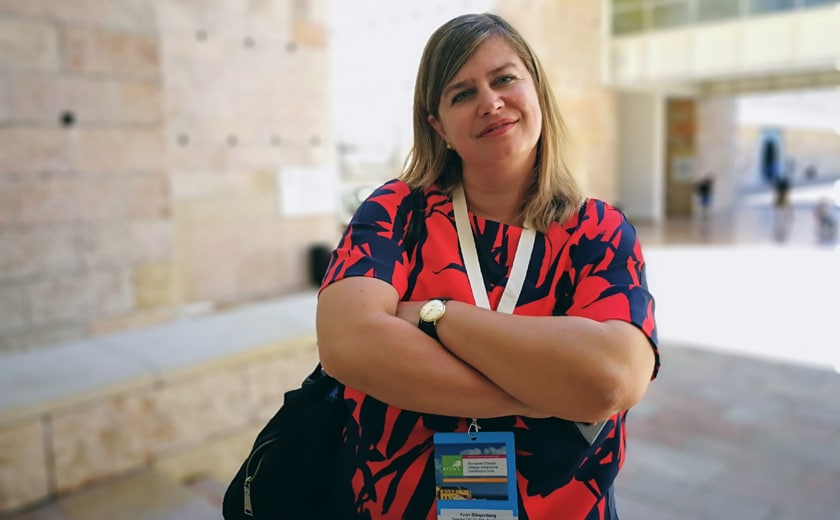Interview with Yvon Slingenberg of DG Climate Action, European Commission

On 13 May, the European Commission launched a call for experts to join Mission Boards, which will advise the Commission on the identification and implementation of missions in Horizon Europe, the next EU research and innovation programme. The call closed on 16 June, with over 2000 applications received, including well over 500 applications for the Climate Change Adaptation Mission Board.
We caught up with Yvon Slingenberg, Director of International, Mainstreaming and Policy Coordination at the Directorate-General for Climate Action (DG CLIMA) in the European Commission, at the European Climate Change Adaptation conference (ECCA) to talk about the missions and how recent developments are giving new impetus to climate action.
Q. The goal of missions is to galvanise action around a major challenge, like landing on the moon. How can we create the sense of urgency that is needed to make an ambitious mission like this a success?
Tackling climate change is a priority for the European Commission, so the sense of urgency is already captured when it comes to the mission on adaptation and across the other missions as well. It is apparent that there is also a clear sense of urgency now among EU citizens, and we all agree that climate change needs to be a cross-cutting issue across all levels of society.
As we start co-creating the objectives, instruments and projects of the missions, we are confident that we will make progress and take action that is needed to build on the goals of these missions, ie to strengthen adaptation and resilience in Europe.
Q. How will you bring together the multitude of players to compose a “dream team” for these missions?
The need to build a multi-disciplinary team for the missions is both a challenge and an opportunity: we need to engage with all stakeholders and tap very diverse fields of expertise; in order to have concrete results that also trigger the necessary societal transformation. It will be essential to select the right board members that can constitute a truly visionary and representative mission board.
We need to focus and work together towards concrete outputs that can really deliver results. In this manner, our hope is that this mission will have societal impact that is comparable to be a moon landing, not least because the challenge is even greater.
Q. Your call for experts says that “missions will be implemented through a systemic approach, combining new knowledge and technology with business model, finance, regulatory, governance, skills and social innovation”. How do you propose to adopt such a large-scale, comprehensive approach?
We need to work together on this common agenda. Indeed, on climate change adaptation we, at the European Commission, are already collaborating with all areas of policy and legislation. Yet I also sense a real interest and momentum to find pathways and commonalities that are linked up and can support each other to find new ways forward – the challenges tackled by missions are of a scale and complexity that means there is no ‘silver bullet’, and no single actor can face them alone. I believe that there is a huge interest by industry to seize the low-carbon business opportunities, including in the area adaptation, and the private sector is an essential partner, as is the so-called third sector. That is why we have to work together with an integrated approach that is capturing synergies, this could really make a big difference.
[bctt tweet=”We have to work together with an integrated approach that is capturing synergies, says Yvon Slingenberg @EUClimateAction” username=”ClimateKIC”]
Q. The recent European Parliament elections has seen a greater support for the European Green Party as well as a strong message in favour of fighting climate change. How could this influence the situation at an EU policy level?
Support in the streets and society at large has been extremely encouraging. Following the European elections we expect even stronger support for ambitious climate action in the European Parliament, and we believe that climate change will be an even greater priority for the new leaders of the European Commission.
The current commission has already done a great job by putting forward all legislation to meet our 2030 targets as well as an ambitious vision for full climate neutrality by 2050, but we now have new leaders coming in with fresh ideas and a political mandate to accelerate action to reduce emissions and at the same time make Europe more resilient to the changing climate, so in my view this will be extremely helpful.
For more information on the European Commission’s call for experts click here. You may also see some additional comments by Yvon Slingenberg in this video:
